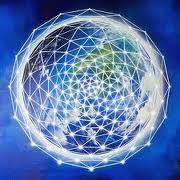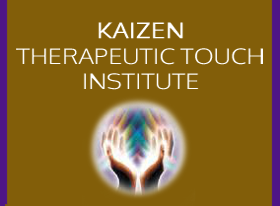 The topic of Work – Life Balance has received a lot of attention in the last 3 decades. Its emergence as a concern may be attributed, in part perhaps, to the increased use of technology in the workplace, and the unmet expectations for more leisure in our lives that the emerging technologies were promised to deliver.
The topic of Work – Life Balance has received a lot of attention in the last 3 decades. Its emergence as a concern may be attributed, in part perhaps, to the increased use of technology in the workplace, and the unmet expectations for more leisure in our lives that the emerging technologies were promised to deliver.
Could it be that collectively we are disappointed, betrayed even, by this failed promise? Feeling ourselves swept up in the tsunami of technological innovations at an ever increasing rate, we may feel run off our feet with no designated down time to effectively integrate the changes into the framework of our lives.
Are we caught in a technological treadmill that we don’t know how to control? Have we been sold a bill of goods where some, very few maybe, enjoy the leisure of technological advances while others, the mass consumers and working class feel trapped and pinned into structures where the demands made on them to adapt to new technologies without effective training or coaching leave them feeling stressed, spent, burned out and on the other hand, hooked – addicted and trapped?
Until we find a way to integrate these new emerging technologies in ways that enhance our way of being, we are lost, enslaved by the technologies developed to liberate us. That is the paradox.
Could our desire for work-life balance be, in essence, a generic call for help? For some, this call for help may recognize the need for effective leadership in the workplace, leadership that puts the highest value on sustainability of People, Planet, Profit, Purpose and Passion… leadership that recognizes the role of technology and applies it effectively in the workforce to achieve its sustainability agenda. For others, it may be a call for help in developing personal leadership – developing new approaches, ways of thinking, feeling and doing that build coping and navigational skills to foster personal sustainability.
It’s by putting sustainability first, that we challenge ourselves, and others, to see beyond the box we are in and help us to clarify what’s important now. Asking questions that provoke reflection can lead to new insight and develop awareness.
Is how you are living today personally sustainable? How do you know?
What aspects of your work nourish your life? How?
How does your personal life contribute to your professional life?
Balance is a dynamic process. Recognizing balance as an experience, helps us uncover contributing factors. Defining the context of our lives help us frame the situation and allows us to assess the situation from a fresh interconnected perspective.
Systems Perspective
 What holds our lives together is a complex system of relationships. As human beings, we are a complex, multi-dimensional systems, nested and in relationship within other, ever increasing, complex living systems. This systems view allows us to move with ease between the personal and professional dimensions of our life to recognize the ever changing social, cultural, political, economic, environmental systems that our lives are a part of and contribute to.
What holds our lives together is a complex system of relationships. As human beings, we are a complex, multi-dimensional systems, nested and in relationship within other, ever increasing, complex living systems. This systems view allows us to move with ease between the personal and professional dimensions of our life to recognize the ever changing social, cultural, political, economic, environmental systems that our lives are a part of and contribute to.
The context within which we live and work can either enable or constrain our potential. “FIT” is key. Feeling a sense of belonging, having shared values and a common vision along with feeling that we can commit to our lives and apply our unique strengths and talents to making a contribution fosters engagement and growth.
These conditions, when met, can contribute to growing our capacity and help unleash our potential. When the “FIT” is not good or we feel in any way threatened by unfriendly working or living conditions the question of work-life balance comes into focus along with many other questions that capture our attention and get our energy.
Without energy there is no life. Life is energy. It cannot be created or destroyed. It can only be transformed. Consider your life-work situation from an energy perspective.
If all your energy is consumed by your work, what kind of energy is left for your personal life? If, on the other hand, all your energy is consumed by your personal life, how long do you think you will be able to hold down your job, keep your business from failing or have a professional life?
There’s a great little tool, called an Energy Audit that I offer my clients. Every thought, feeling and action has an energy consequence. Changes in one dimension of energy affect all other dimensions. Managing your energy starts with self awareness. You need to know what gives you energy and how and where you lose it, to manage your energy effectively.
Pay special attention to your energy ups and downs over the course of a day, identifying the events, thoughts, feelings and actions that increase or deplete your energy. Choose any particular day, or do this exercise for a couple of days until you become aware of your patterns.

The Story
Insights:
Actions I can take to energize my life:
If energy is life, then personal energy management becomes key to work life balance. The Energy Audit helps them get the data they need to make better choices.
As we start to reflect on our situation from an energy perspective, we begin to see things more wholistically. We recognize the interdependent nature of relationships in our life work dynamic. Some of these relationships and the roles we play to sustain them give us energy and others cause us stress and deplete us.
Learning to discern what works for us, what gives us energy, and acting on this knowledge moves us towards balance and wholeness. In the process, we learn to make choices that serve our highest interest, recognizing, in all Once aware of your energy patterns, you are empowered to make better choices.
Life is NOW – the only moment that we can exercise our power of choice. Coaching and the reflective practice it cultivates, helps build the inner resources to regulate and balance your life around what’s important to you and move you, step by step, towards sustainable success – that is, success we can live to enjoy.
This article was first published in the November 2013 edition of Worldwide Coaching Magazine





